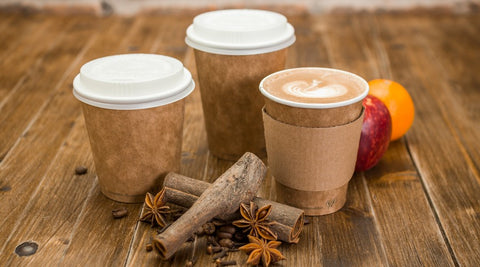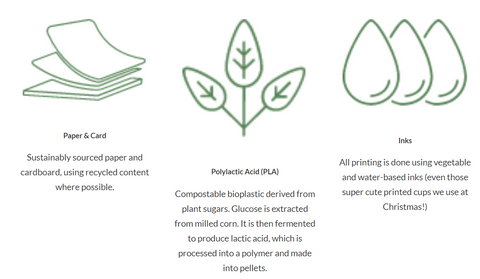Sustainability Saturday: It's Not Just A Coffee Cup!
It's Not Just A Coffee Cup!
In our recent Sustainability Saturday blog series we’ve been focusing on products we sell in the shop, and the steps different brands are taking to make their products more eco-friendly. Today we’re taking a different approach, and taking a look at what else Eland Lodge is doing to become more environmentally sustainable as a business.
With events back up and running, lots of you will pop by the coffee shop while you’re here and pick up a takeout hot drink. So today we’re going to take a look our takeout cups, and how they’re way better for the environment than your disposable coffee cup.
Back in 2018 we made the decision to switch from standard coated paper cups and plastic lids, to Vegware cups and lids.

What’s so great about Vegware?
Vegware produce plant-based foodservice packaging that is made from renewable, lower carbon, recycled or reclaimed materials.
Not only are the materials used much better for the environment; but your coffee cup and lid can then be commercially composted with food waste (where accepted).
Composting is a great solution to waste management – the product stays in the local region and is turned into useful resources. The compost is then used agriculture, horticulture, and landscaping to nourish soil and improve its structure to help grow healthy plants.
What a fantastic innovation – reducing the environmental impact from the resources used in production, and reducing the waste once the product has been used!
So what is my Vegware Cup & Lid actually made from?

A Vegware Lid consists of:
Crystallised Polylactic Acid (CPLA)
Compostable bioplastic derived from plant sugars. Glucose is extracted from milled corn. It is then fermented to produce lactic acid, which is processed into a polymer and made into pellets. CPLA is crystallised PLA, and is ideal for use when more heat resistance is needed.
